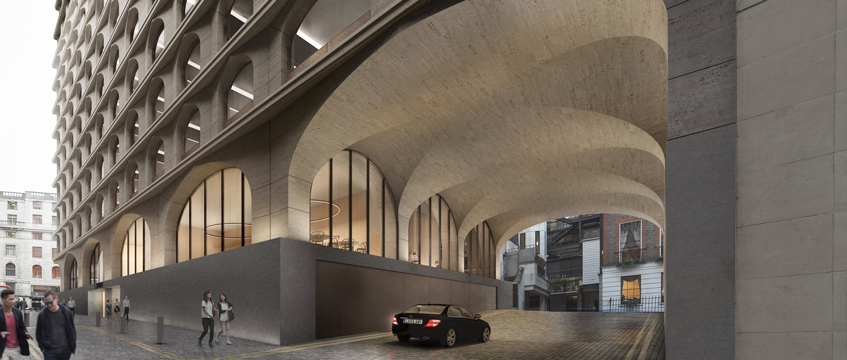An Indian hotel developer’s purchase of a West End office building for £10m above its asking price last week demonstrates the strength of demand in the hotel sector.
The private developer outbid 21 other parties to buy the 72,359 sq ft building at 5 Strand, WC2, from BlackRock UK Property Fund for more than £90m – a circa 12.5% uplift on the original asking price.
London hotel investment volumes reached £1.92bn last year after overseas investors upped their commitment year-on-year by 17.7% to account for £1.1bn of the total, according to Savills.
Competition for sites is prompting hotel developers to outbid office investors for buildings, even if, as at 5 Strand (pictured), that means taking on additional planning risk.
“Fundamentally there is a shortage of assets and the problem is that everyone wants to be in central London,” says Colin Hall, Collier International’s director and head of its London hotels agency.
Successful applications for change of use this year have included Quadrum Global’s plans to demolish two adjoining office buildings at 54 and 55-57 Great Marlborough Street, W1, to redevelop the site into an Eric Parry-designed hotel, and Sir Richard Sutton’s proposal to turn Film House on Wardour Street, W1, home to the offices of creative firms in the film industry, into a 176-bedroom hotel.
In 2017 there were 166 applications to change the use of buildings into hotels in the UK, a 219% increase compared with 2014, according to Radius Data Exchange. In London, there were 18 applications for change of use, a 33.3% increase from 2014.
Change of use applications last year included the Reuben brothers’ consented proposal to convert the former In and Out club at 94 Piccadilly, W1, into a 102-room hotel. The brothers acquired the site in 2012 for £100m but scrapped plans to create a luxury home on the site.
“In spite of Brexit, London and the UK is still seen as a safe haven, even though returns are not great and yield is down to 4% in some cases, but you are not losing money,” says Marc Finney, head of hotels and resorts consulting at Colliers.
He added that the appreciation of sterling following the Brexit vote in 2016 made hotels a good option for overseas investors, particularly with the softening prime residential market, as not only were they able to buy more for their money, but the cheaper pound also caused an influx of tourists, boosting the operating performances of hotels.
Gary Witham, director, hotel agency at Savills, says: “Overseas investors look at owning a hotel from an income perspective, but also as something that they themselves will use.”
“Ultra-high net worths, when they look at Europe, see it as a possibility for a showroom for products from their other businesses. They can fit out a hotel with their products, and when clients visit, everything is on show.
“As a European base for what is probably several business streams, a hotel in London makes a lot of sense.”
However, London hotel investment volume from UK institutions also grew by 6.8% year on year, amounting to £370.7m, and making it the highest level of investment from this buyer type for more than 10 years, Savills reported.
This trend has continued into 2018, with institutional buyers contributing to 18.2% of all London transaction volumes in the year to date.
And there is still a raft of hotel brands and investors “looking to get into the UK”, Finney says, including Oxford Capital Group, owner of US brands Godfrey Hotels and LondonHouse.
“There are others with just one outpost here that would also love to increase their footprint, such as the Mandarin Oriental,” Finney adds.
To send feedback, e-mail Louise.Dransfield@egi.co.uk or tweet @DransfieldL or @estatesgazette











